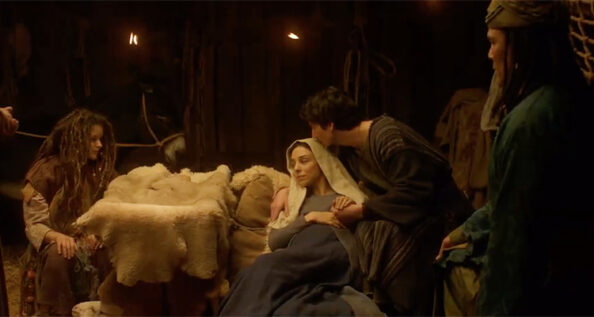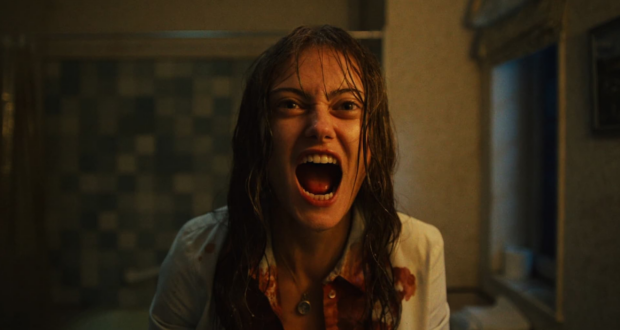Directed by Adam Anders, Journey to Bethlehem strides into the realm of Christian cinema with a harmonious blend of tradition and contemporary musicality. With a stellar cast led by Milo Manheim and Fiona Palomo as Joseph and Mary, respectively, the film seeks to reimagine the age-old narrative of the Nativity while infusing it with a fresh musical fervor. Despite its earnest attempts, this film journeys through familiar territories but struggles to fully transcend the confines of its genre.
Set against the backdrop of a familiar biblical tale, the movie promises a unique rendition of the journey of Mary and Joseph toward Bethlehem. From the outset, the premise captivates, portraying a young couple’s emotional turmoil intertwined with a perilous political landscape. Fiona Palomo’s portrayal of Mary showcases her emotional depth and inner strength, resonating with the character’s unwavering faith and fortitude amidst daunting circumstances. However, the chemistry between Palomo and Manheim as Joseph feels somewhat forced, lacking the organic evolution necessary to truly engage the audience in their journey.
The film’s standout performance undeniably belongs to Antonio Banderas, whose portrayal of King Herod exudes an ominous charisma. Banderas brings a chilling authenticity to the role, embodying the power-hungry monarch’s paranoia and ruthlessness. His scenes are compelling and add a layer of intensity to an otherwise predictable narrative. Moreover, Lecrae as Gabriel and Joel Smallbone as Antipater deliver commendable performances, contributing to the film’s overall appeal.

One of the film’s most commendable aspects is its musical prowess. Adam Anders, known for his musical prowess, delivers a melodic fusion of traditional Christmas hymns and contemporary pop tunes. The soundtrack is undeniably the film’s heartbeat, injecting life into pivotal moments and enhancing the emotional resonance of the narrative. However, while the musical numbers are lively and well-choreographed, some transitions between dialogue and musical sequences feel abrupt, hindering the film’s pacing and cohesion.
Visually, Journey to Bethlehem boasts impressive cinematography that captures the rustic charm of biblical landscapes. The attention to detail in recreating historical settings is commendable, immersing the audience in the ancient world of the Nativity. However, at times, the film falls short in seamlessly blending its visual grandeur with the narrative. This results in occasional distractions rather than enhancing the storytelling.
The film’s script, penned by Anders and Peter Barsocchini, navigates the delicate balance between staying faithful to the biblical source material and infusing modern elements. While attempting to breathe new life into a well-known tale, the screenplay occasionally feels formulaic. It often relies heavily on predictable plot devices and dialogues that lack depth. Moments intended to evoke emotional resonance sometimes come off as contrived, failing to elicit the intended impact.

Journey to Bethlehem is undeniably a heartfelt tribute to the spirit of Christmas and the enduring story of Jesus’ birth. Its ambition to blend faith-based storytelling with a contemporary musical approach is admirable. However, despite its earnest endeavors, the film falls short in delivering a truly transcendent cinematic experience. The lack of organic character development and occasional narrative predictability prevent it from reaching its full potential.
Journey to Bethlehem stands as a commendable effort in retelling a beloved story through a musical lens. It might resonate with devout audiences seeking a festive celebration of faith and tradition. But its limitations in character depth and narrative innovation may leave some viewers wanting more. It’s a melodic journey that sings the familiar tunes of Christmas but struggles to find its unique voice in the choir of cinematic adaptations.
Journey to Bethlehem Review: A Melodic Take on a Timeless Tale
-
Acting - 7/10
7/10
-
Cinematography/Visual Effects - 7/10
7/10
-
Plot/Screenplay - 6.5/10
6.5/10
-
Setting/Theme - 7/10
7/10
-
Watchability - 7/10
7/10
-
Rewatchability - 5/10
5/10


















